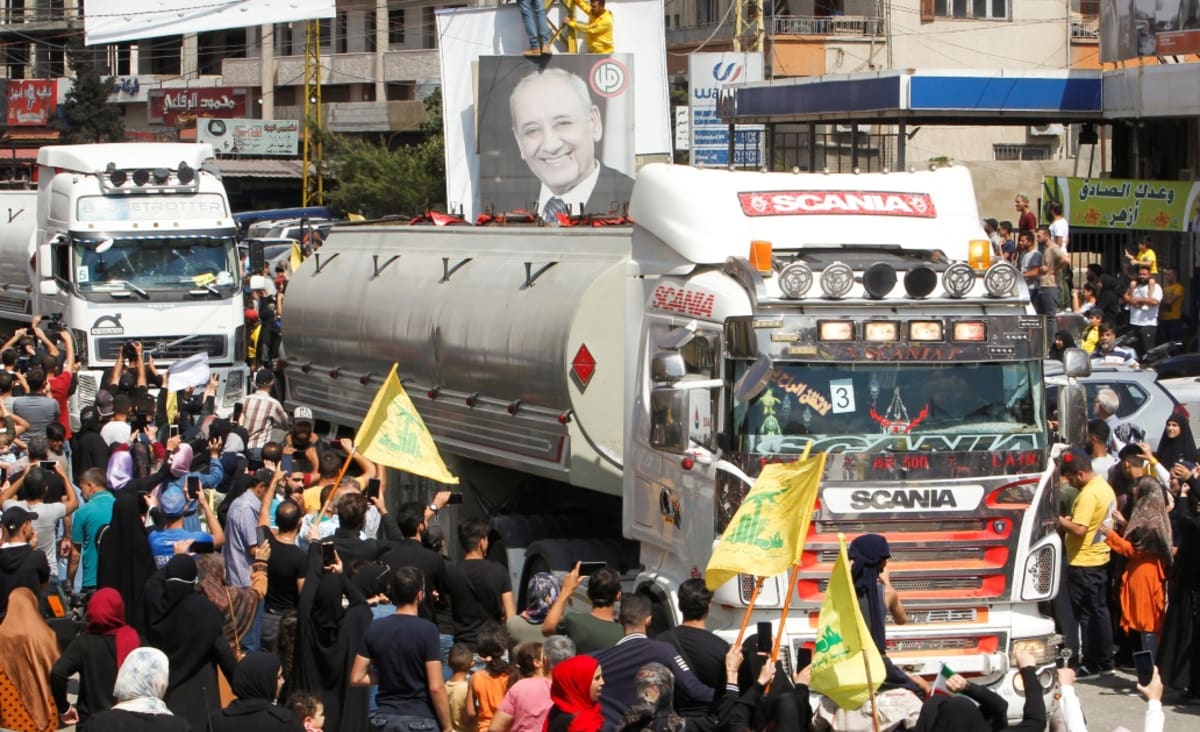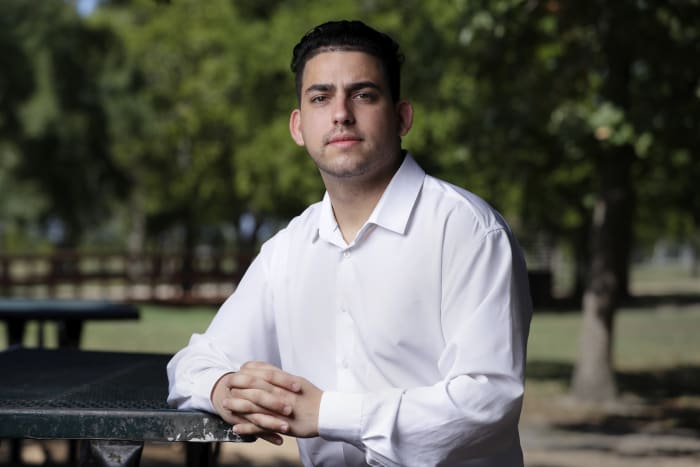
www.aljazeera.com
Hezbollah using fuel patronage to deflect anger, analysts say
Analysts say the Iran-backed party’s expanding patronage aims to boost its popularity amid Lebanon’s energy crisis.
International
Beirut, Lebanon – When the first convoy of Hezbollah-brokered Iranian diesel fuel arrived in Lebanon earlier this month, it was met with a mixed reaction.
While some feared that the Iran-backed party would use it to further assert its dominance, others welcomed the fuel as a temporary relief in the middle of a crippling energy crisis. And for Hezbollah’s supporters, it was hailed as a victory.
On September 16, convoys of trucks crossed the Syrian border into the cash-strapped country and across its eastern province towards Baalbek. Along the way, municipalities affiliated with Hezbollah displayed banners with photos of the Iran-backed group’s leader Hassan Nasrallah, alongside his trusted allies Syrian President Bashar al-Assad and Iran’s Supreme Leader Ayatollah Ali Khamenei.
Hezbollah’s zealous supporters defied Nasrallah’s orders to not congregate near the trucks. Women ululated as they would at a wedding, waved party flags, and threw rice and flowers at the trucks. They raised their fists chanting: “We heed your call, Nasrallah!”
Meanwhile, several men brought out assault rifles and fired celebratory gunshots into the air. Some even fired rocket-propelled grenade (RPG) rounds.
The supporters perceived this as victorious defiance of US sanctions against Hezbollah and the Syrian government, which they say has resulted in an economic blockade on Lebanon.
The Iranian fuel from Syria’s Baniyas Port was taken to the warehouses of the US-sanctioned Hezbollah-affiliated Amana Fuel Company.
Hezbollah is offering a month’s supply of the fuel for free to some institutions in need – such as public hospitals, the Lebanese Red Cross, Civil Defence forces, and orphanages – while offering them to others at prices slightly cheaper than on the black market.
More Iranian fuel is set to be delivered to Lebanon as part of a four-tanker shipment that Iran Oil export monitor Tanker Trackers says contains a total of 33,000 metric tonnes of oil and would need 792 trucks to deliver.
A crippling power crisis that has significantly worsened over the last few months has left Lebanon plagued by lengthy power cuts, with common Lebanese struggling to afford the surging costs of private generators and hospitals barely functioning as they struggle to secure enough fuel.
The energy crisis comes as Lebanon is mired in an economic meltdown that has left almost three-quarters of the population in poverty. The currency has lost some 90 percent of its value since 2019.
Despite the narratives of a “blockade”, anger over the economic and energy crises has grown towards Lebanon’s ruling elite, consisting of political parties and private sector cronies that represent Lebanon’s mosaic of religious sects.
Hezbollah, a close ally of President Michel Aoun and Speaker Nabih Berri, has not been spared from that anger and resentment.
Analysts say Hezbollah is trying to fill that gap the cash-strapped state has left in response to growing condemnation from a population fed up with financial mismanagement and corruption.
“The ruling elite – whether ruling political parties or the Central Bank – got us to where we are today, and then here we have Hezbollah that exploits the situation and comes to the ‘rescue’,” Sami Atallah, founding director of Beirut-based think-tank The Policy Initiative, told Al Jazeera.
“To their constituencies, they’re being presented as heroes. They’re trying to show they can take things into their own hands to alleviate their suffering.”
But some institutions are more eager to accept the fuel than others.
‘Show of resistance’
Jihad Chihimi, who oversees maintenance at the government-run Rafic Hariri University Hospital in Beirut told Al Jazeera the hospital receives just six hours of electricity from the state a day and is forced to use generators to make up the shortfall.
“We have enough diesel fuel for the generators for a few more days, depending on how long the cuts are. But it’s something we try to secure day by day with no real stability,” he said.
The hospital has relied heavily on donations for diesel, but still rations its supply, sometimes turning off air conditioners and opening windows instead.
But the hospital has not yet decided whether it would accept a fuel donation from Hezbollah.
Many fear accepting the fuel could result in unwanted consequences by possibly violating sanctions, making them beholden to the party as its beneficiaries, or even losing the trust of their clientele.
Chihimi declined to comment on that aspect of the fuel shipment. A spokesperson for the hospital said they have not reached out to Amana for a fuel donation.
For others, the decision to accept Hezbollah-brokered fuel is straightforward.
“I say ‘khosh amadid’ [“welcome” in Farsi] to the Iranian fuel,” Assaad Nakad, who runs private energy utility company Electricity du Zahle in eastern Lebanon, said.
























































